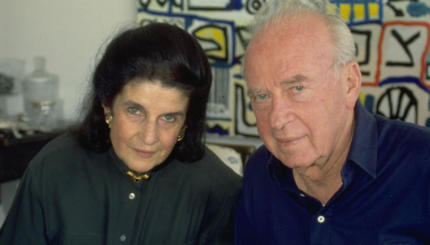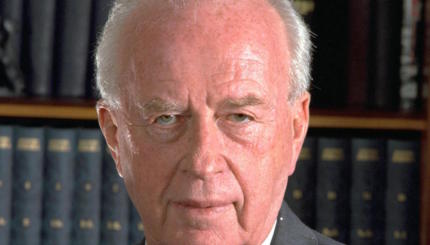Having traveled frequently to Israel for the last decade, I have many amusing stories of security interviews before boarding flights to or from Israel. I know all of the questions by heart: “What was the purpose of your visit?” “Where did you learn Hebrew? “Do you belong to a congregation?” I recall being flustered during one interview before a New York El Al check-in, when I was really preoccupied wondering whether I had finished all my urgent work, packed everything I needed and if my suitcase was overweight. Following my reply that I do attend synagogue regularly, the agent asked me to tell him the name of this week’s portion, and I was momentarily tongue-tied. Oh, how embarrassing when his next question was, “What kind of work do you do?” “Um, I’m a rabbi.”
At Ben Gurion Airport I have come to anticipate the exchange that invariably causes a reaction – when they ask me about my profession. Several years ago, coming home from a summer trip in intense August heat, I was wearing shorts. Not only was the agent surprised to hear that I am a rabbi, but she was suspicious. How could a rabbi wear shorts? (I admit that after that I no longer wear shorts on these flights.) For most Israelis, the word “rabbi” evokes an image of a bearded man in a black coat and hat, whose wife wears a long skirt, long sleeves and covered hair. The appearance of a woman in shorts claiming to be a rabbi defied credulity in that moment.
Without fail, the reaction is, “Really? Women can be rabbis? I never heard of this!” One time a female agent teared-up with emotion to learn that women can be rabbis. I wanted to hug her.
Such is the case in Israel – where the official Rabbinate has a monopoly on Jewish religious authority, ruling that only male Orthodox rabbis can be hired and paid by the state as community rabbis. That is, until this spring when Rabbi Miri Gold, a Reform rabbi won a nearly decade-long fight to be paid as the rabbi of her community. The court decision was in some ways inconclusive – the official Rabbinate won’t be endorsing or paying Rabbi Gold. Rather, her salary will come from the Ministry of Culture and Sport, and the ruling applies only to rabbis who are employed by regional councils. Rabbi Gold shared joy and relief at this victory, but added, “I can’t say that I feel unmitigated joy. Israel is still not the bastion of religious freedom nor the stalwart promoter of religious pluralism. We still have many hurdles ahead, but I believe that we’ll all have renewed energy and determination to push forward…”
This summer I had the privilege to meet and spend time with Rabbi Gold at the Hartman Institute in Jerusalem. I add her to my growing list of friends in Israel — female colleagues who are rabbis of communities. They are courageous, tenacious and crucial leaders for the future of Jewish communities in Israel. I stand in awe of the work they do in spite of the hardships they face: lack of funding and negative perceptions about Jewish religious life among non-Orthodox Israelis. They are breaking down the barriers and building vibrant, exciting communities for a new Israeli Jewish future. Check out the website of Rabbi Tamar Kolberg of Ra’anana, for example.
So this time when I was at Ben Gurion Airport on my way home, the interviewer reacted as expected when I told what I do. He said, “We don’t have women rabbis here.” I smiled and told him about Rabbi Gold’s victory. He was clearly affected, exclaiming, “Wow! I didn’t know I live in such a progressive country!”
Welcome to a new Israeli Jewish reality!



